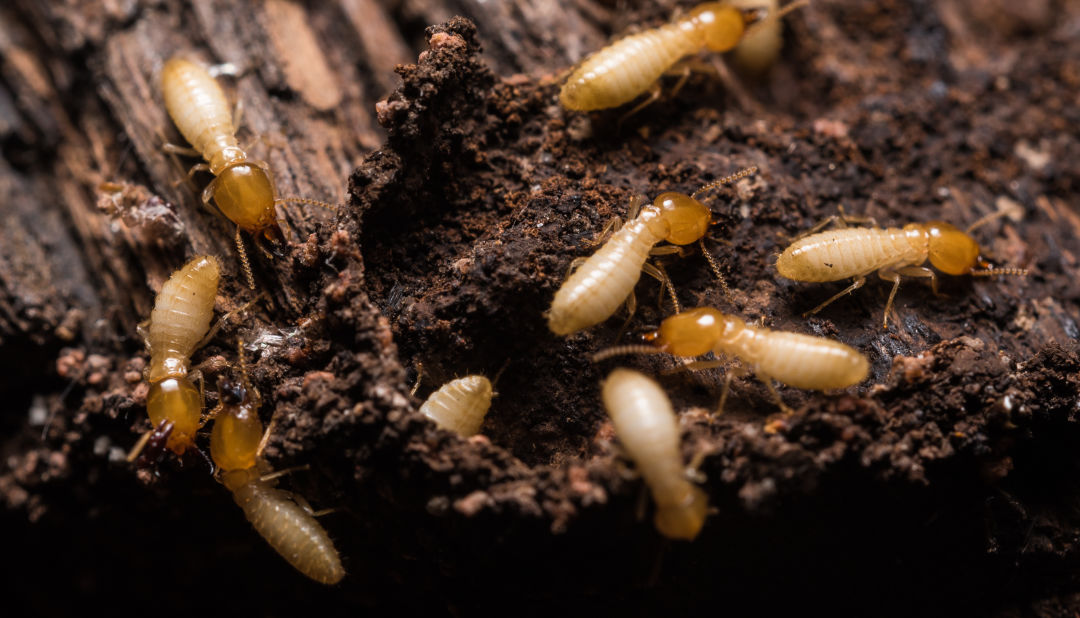Corporate Office:
20 Corporate Park Drive, Suite 150
Pembroke MA 02359
Cambridge, MA Office:
2534 Massachusetts Ave,
Cambridge, MA 02140
August 15, 2025

When it comes to protecting your home from termites, many homeowners focus on inspections and treatments but overlook one of the most important factors: landscaping. Believe it or not, the way you design and maintain your yard can have a major impact on whether termites are attracted to your property or kept at bay.
At Secured Environments Pest and Wildlife Services, we’ve seen firsthand how smart landscaping choices help reduce termite risk and protect homes from costly damage. Here’s what you need to know about how your landscaping can either invite termites in or keep them away.
Termites thrive in environments where moisture, food sources, and shelter are readily available. Your landscaping can provide all three if not managed carefully. Mulch, wood piles, dense shrubs, and overwatering can create the perfect habitat for termite colonies to establish themselves close to your home’s foundation.
For example, organic mulches like wood chips or bark hold moisture and provide a food source termites love. If mulch is piled up against your house or near wooden structures, it acts as a direct bridge for termites to enter your home unnoticed. Similarly, firewood stacked right against your siding or foundation can serve as both shelter and sustenance for termites.
Fortunately, there are several landscaping strategies you can use to make your property less attractive to termites. First, maintain a gap between mulch and your home’s foundation — at least 6 to 12 inches is ideal. Consider using inorganic mulches like rubber or gravel near the house, as these do not provide food or moisture retention for termites.
Regularly trim bushes and trees to prevent branches from touching your home, since these can act as “highways” for termites to gain easy access. Avoid planting large shrubs directly next to your foundation and remove dead plant material promptly.
Proper irrigation is also crucial. Overwatering can saturate soil and wood structures, creating a moist environment termites love. Use targeted watering systems and ensure your property has adequate drainage to keep soil moisture balanced.
Use termite-resistant plants and trees, such as lavender, marigolds, or eucalyptus, which naturally repel many pests. Create physical barriers using stone or metal edging between soil and wood surfaces.
Avoid burying wood debris or construction scraps in your yard, and keep firewood stored at least 20 feet away from your home, elevated off the ground if possible.
While thoughtful landscaping is a powerful first line of defense, termites are persistent and can still find ways to infiltrate. Regular termite inspections and professional treatments remain essential to safeguard your home.
At Secured Environments Pest and Wildlife Services, we provide comprehensive termite control solutions, including inspections, treatments, and expert advice on landscaping and property maintenance. Protect your investment by combining smart landscaping with proven termite management strategies.
If you’re ready to reduce termite risks on your property or want a professional assessment, contact Secured Environments Pest and Wildlife Services today. Together, we’ll create a pest-resistant environment that keeps your home safe year-round.
*are required fields